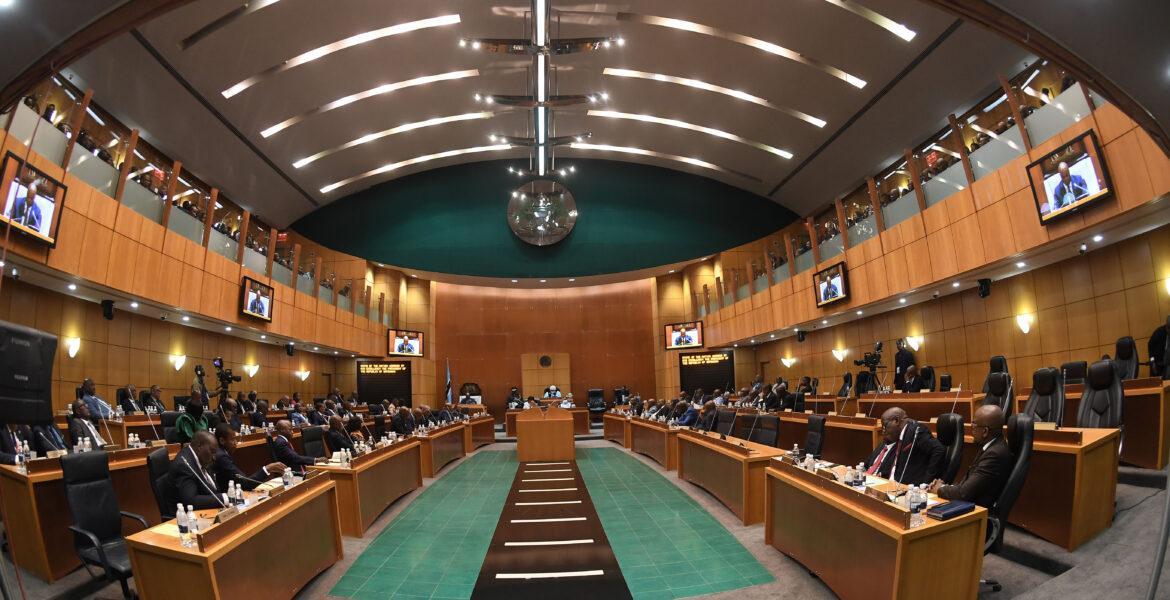Africa-Press – Botswana. MPs have voiced concerns over the recent adjustments made on the Pula exchange rate, questioning the government’s preparedness and the impact on ordinary citizens, particularly the poor.
Following a statement in Parliament made by the Vice President and Minister of Finance Mr Ndaba Gaolathe yesterday, the MPs noted that Batswana had not received the adjustments with ease. Bobirwa MP, Mr Taolo Lucas said there was an immediate spike in food prices following the changes and further wanted to know measures in place to protect low-income earners.
“How will the poor survive?” he asked, emphasising that essential commodities became more expensive overnight, placing an unbearable burden on vulnerable households.
Nkange MP, Mr Motlhaleemang Moalosi acknowledged that local manufacturers could benefit from a weaker Pula but raised doubts about the actual impact.
“Many local manufacturers rely on imported materials, so, how exactly will they benefit, especially that they source material outside the country?” he asked.
He further warned that the changes could lead to a rise in fuel prices, saying though currently regulated, it was triggering an increase in transportation costs and contributing to inflation.
“Salaries have not been adjusted, what about people earning P1,000 per month? They are the ones at risk,” he said, warning that the changes could further erode purchasing power and dent the local economy.
Member of Parliament for Tlokweng, Mr Phenyo Segokgo called for clarity on the long-term strategy, and questioned whether the blended exchange rate approach would ultimately stabilise the economy. He also called on Department of Consumer Affairs to monitor food prices, saying there should be public education about what was happening as most Batswana were in the dark about the changes.
Okavango West MP, Mr Kenny Kapinga said the government could have used the High-Level Consultative Council (HLCC) arrangement structure after the adjustment to coordinate the response. He also raised concerns about the rising foreign exchange costs to commercial banks, warning that these could push importers to source from the black market.
Maun West legislator Mr Caterpillar Hikuama called for practical solutions and challenged the ruling party to desist from blaming opposition parties regarding the status of public funds. Responding to the questions, Mr Gaolathe defended the decision, acknowledging that while the changes would indeed affect all Batswana, the government had to act to protect the country’s foreign reserves.
“If we did nothing, the economy would have taken an even worse turn, there would be nothing left to defend,” he said.
He pointed out that the changes served as a protective measure and shield against economic collapse. Mr Gaolathe further stated that the changes were meant to shield from a far devastating outcome where the country would not be able to pay for imports such as fuel, food or medicine and the banks ran dry. The Vice President admitted there were challenges ahead, including potential increase in petrol prices, but stressed that the move was necessary to ensure economic sustainability and maintain Botswana’s competitive edge globally.
“People will feel the pain, but it is a pain we had to take to survive,” he noted.
He also revealed that the government was working to strengthen regulatory bodies such as the Competition and Consumer Authority, which had not been adequately active. He acknowledged that government was aware that the black market could emerge and were monitoring that risk closely.
For More News And Analysis About Botswana Follow Africa-Press






